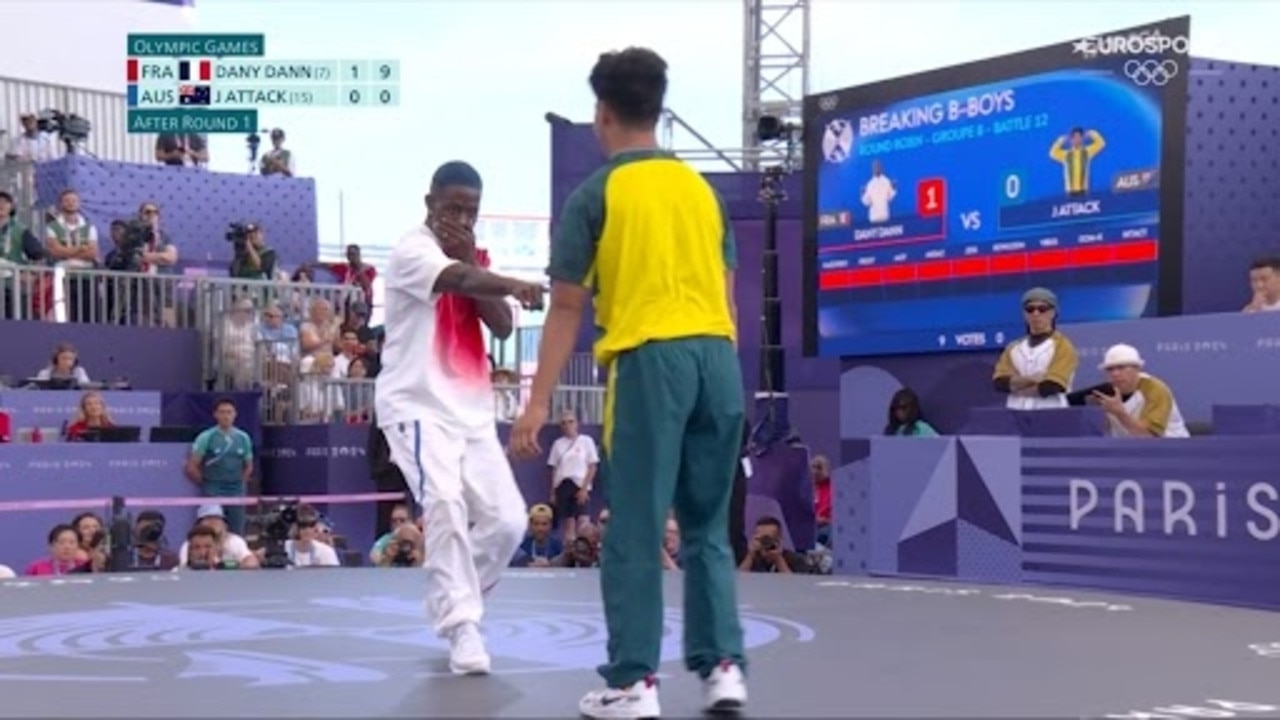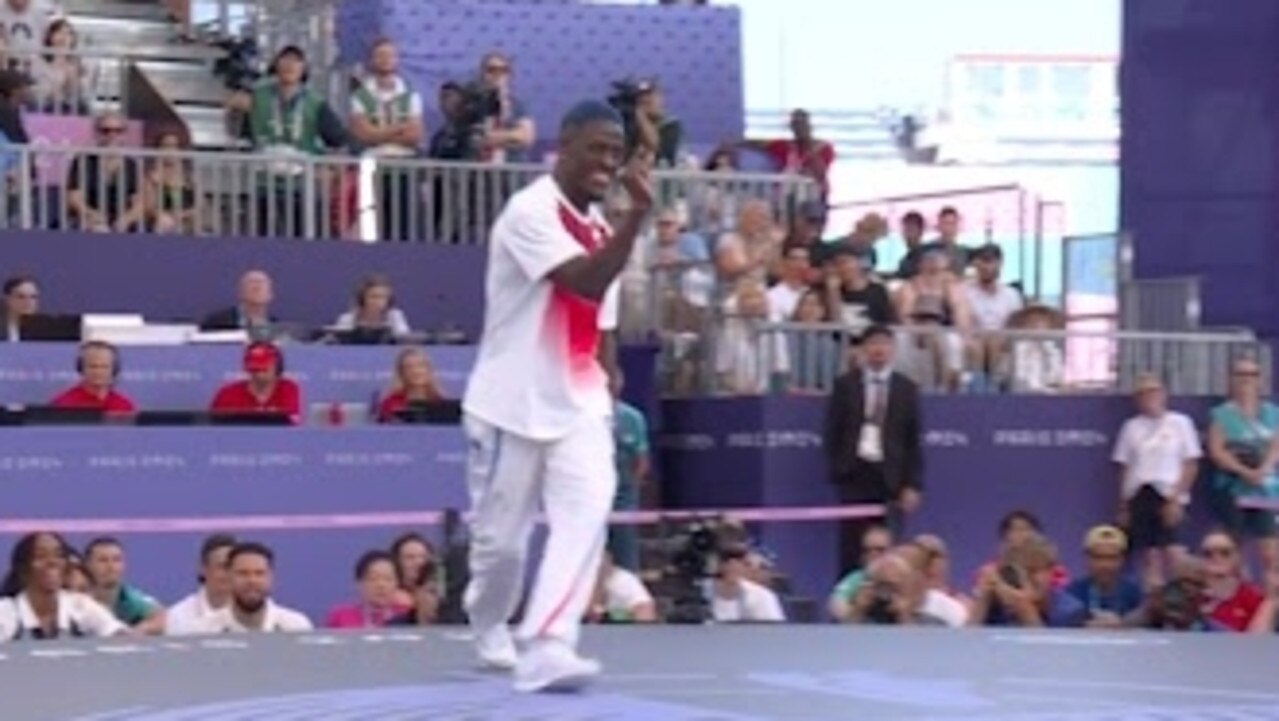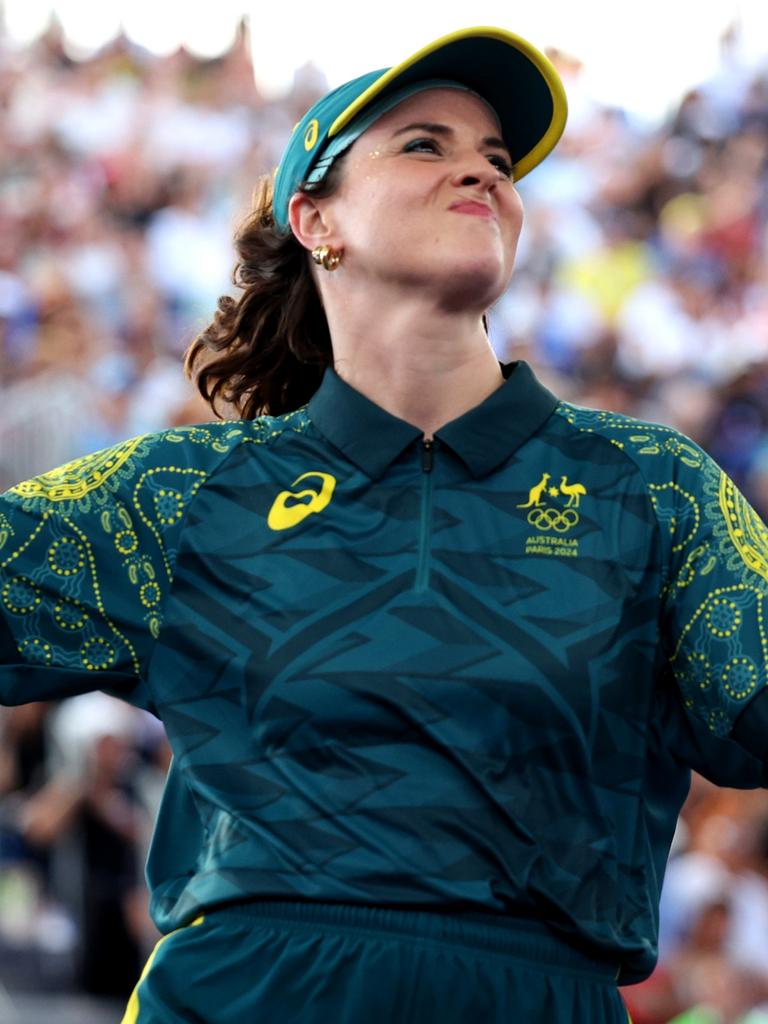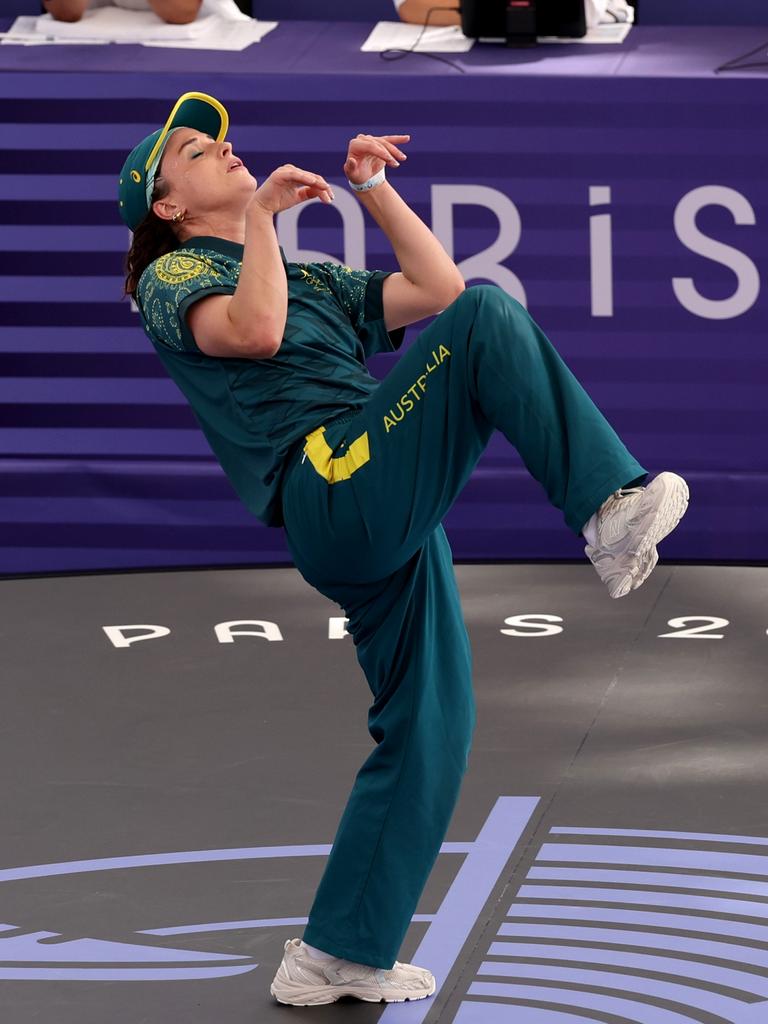French breaking star’s vulgar act on Australian teenager in Paris
An Australian breaker is back in the spotlight. This time it’s because of a rival’s vulgar taunts at the Paris Olympics.

An Australian breaker is back in the spotlight, this time for very different reasons.
Aussie schoolboy Jeff “J-Attack” Dunne’s Olympics ended in the round robin phase on Sunday morning, losing all three of his battles (17-1, 17-1, 18-0).
It was, however, in his second battle when things took a cruel turn as he went up against French star Dany Dann.
The 16-year-old found himself on the receiving end of a cruel taunt at the hands of the 36-year-old.
With the 18-0 rout effectively wrapped up, Dann, whose real name is Danis Civil, made things personal against the Australian teenager as he mimicked pulling his pants down with one move.
Not finished there, the Frenchman walked away as he pointed at his groin and began laughing before holding up his finger and thumb in close proximity, gesturing that the Aussie was petite in size below the belt.



While J-Attack gave it his all, just like it was a day earlier with Rachael “Raygun” Gunn, he came under fire from viewers over his Australian tracksuit attire.
Almost every other competitor in the divisive sport wore a more free flowing street style of outfit, while the Aussie athletes rocked head to toe tracksuits.
Unlike his fellow compatriot, J-Attack’s moves didn’t spark widespread backlash with the youngster receiving praise from viewers.
Unfortunately for J-Attack it mattered little as he was wiped off the floor with Canada’s Phil Wizard defeating Dany Dann in the gold medal contest.
In the end the Aussie duo walk away from the Breaking with only two points out of a potential 108 on offer through six round robin battles.


With Breaking not to be returning for the 2028 Olympics in Los Angeles, questions have been raised over the sport’s murky entry into the Paris Games.
The steps leading up to Gunn’s “lamb to the slaughter” moment show just what a farce the whole Olympics breaking episode has been - from start to finish.
Having five years to prepare for the sport’s inclusion in the Games — after it was approved for the Paris program by the IOC in 2019 — was not enough.
The sport was at war with itself - and remains so.


The first international “battle” recognised by the IOC was in 1997 - but the sport’s breakthrough moment came when it was admitted to the Youth Olympics in 2018.
The problem was, it blindsided the breaking community.
A furore erupted after what some saw as an underhanded plot by the World DanceSport Federation to join the Olympic program.
The WDSF initially wanted to get ballroom dancing in the Games, but knew it was seen as too dated to secure the audience Olympic officials were desperate to attain - GenZ.
So without any official global organisation to challenge them, the WDSF pivoted to breaking. And suddenly the sport was in the Olympics.
Now the sport’s hopes of ever returning to the Olympics are the same as the Aussie’s score after three “battles” at the La Concorde Urban Park. Zero.





